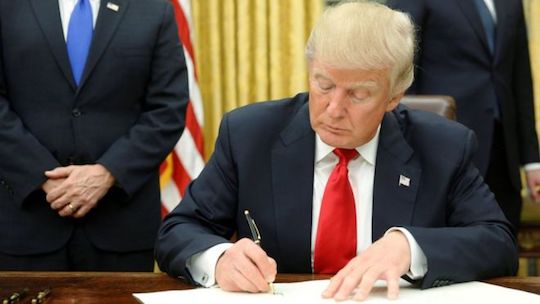Now that Donald Trump has issued an executive order banning refugees and visitors from seven Muslim countries, we might take a moment to get to know the man who wrote it, Stephen Miller. Miller is a 31 year-old former aide to Sen. Jeff Sessions who spent the last year warming up crowds for Trump on the campaign trail. In that capacity, he posited a vast left-wing conspiracy that centered on his candidate. For example:
That’s what this all comes down to: Everybody who stands against Donald Trump are the people who have been running the country into the ground, who have been controlling the levers of power. They’re the people who are responsible for our open borders, for our shrinking middle class, for our terrible trade deals. Everything that is wrong with this country today, the people who are opposed to Donald Trump are responsible for!
That’s from Julia Ioffe’s fascinating profile of Miller in Politico, which ran in June and advances the notion that he built his career on such accusations. As a student at Santa Monica High School after 9/11, he complained that students were not saying the Pledge of Allegiance on a daily basis. When administrators failed to accede to his demands, he called into conservative talk radio host Larry Elder to complain that they were anti-American. As a college student, he invited the ultra-conservative David Horowitz to speak at Duke, then claimed Horowitz had been banned by the university even though he hadn’t. In introducing the speaker, Miller read a list of university departments that had declined to contribute funding to the event. He seems to be working toward a pure politics: one animated not by particular issues but by a totalizing sense of conflict with the other side.





